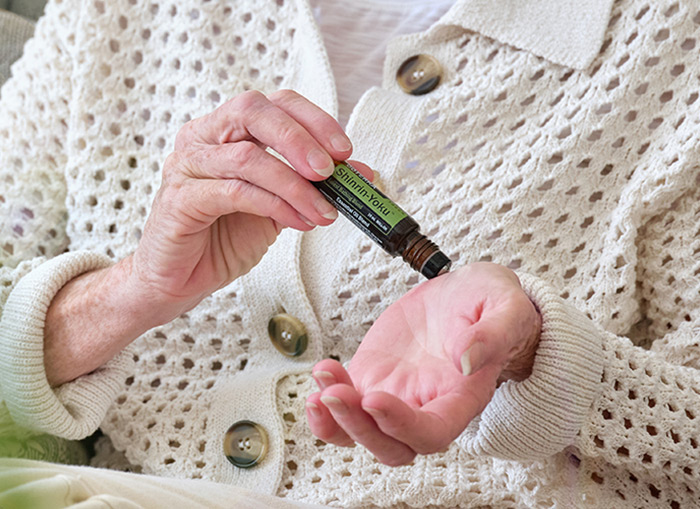
Primary Benefits
- Shinrin-Yoku Touch essential oil blend combines Shinrin-Yoku Forest Bathing Blend with Fractionated Coconut Oil in a convenient roller bottle.
- Shinrin-Yoku Touch oil blend contains essential oils rich in terpenes and phytoncides associated with the positive effects of a walk in nature.
- Shinrin-Yoku Touch essential oil blend creates a calming, grounding environment with a refreshing and inspiring aroma.
- Shinrin-Yoku Touch oil blend is inspired by the health-promoting practice of forest bathing.




































